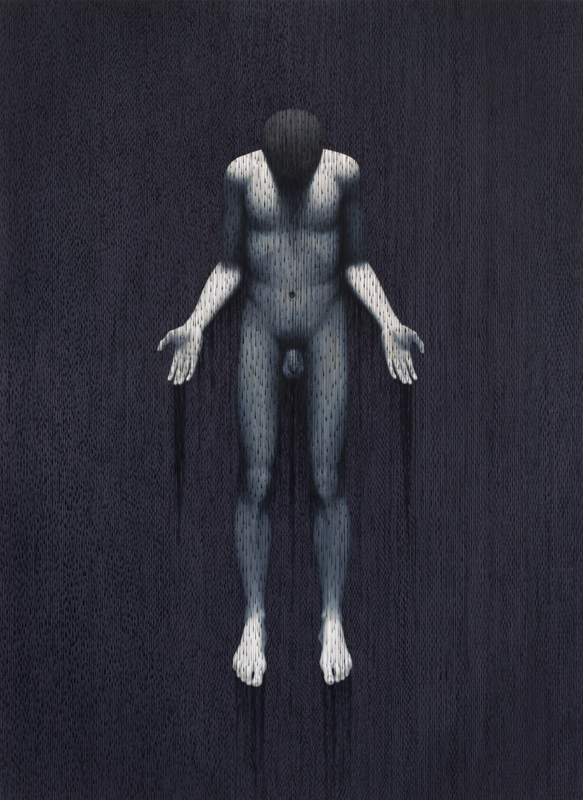
 |
| Cleansing the Invisible Man 2005, acrylic on canvas 66 x 48 in. |
Cleansing the Invisible Man |
Cleansing the Invisible Man follows my tradition of periodically creating minimal works instead of highly complex ones. In them I simplify the compositions as well as other aspects of the picture like the space, colors, and light sources. It is similar to a music composer writing a piece for piano and voice as opposed to one for a large orchestra. In addition to it being a minimal work I also decided to use the same figure, basic composition, and canvas size, I used in my earlier 2002 work, Light of the Dead. Both canvases depict a single figure in an amorphous space, and though the figures are rendered quite differently, they both assume the same pose and exude the same sense of transcendent grace. As you can see, however, beyond those similarities the paintings are quite different. The two painting are not intended to be a pair or a diptych, but simply separate works that explore similar compositions and posed figures. |
 2005, acrylic on canvas, 66 x 48 in. |
 2002, acrylic on canvas, 66 x 48 in. |
The core theme in Cleansing the Invisible Man is purification, particularly as it relates to my continuing exploration of the ideas of change and transformation. In the painting the figure is shown being washed clean of his hidden, invisible sins. The white coloration of the figure represents the result of him being purified and the rain becomes black from the sins that have been purged from him. The light in the painting comes from above illuminating the figure in pure white light. This suggests the presence of God who is effectuating the purification and transformation process. The inspiration for the piece came in part from Psalm 51 (50), Miserere mei, Deus. It is one of the Penitential Psalms (or Psalms of Confession). There are two lines that particularly resonate with me: "Wash me thoroughly from my wickedness, and cleanse me from my sin". And "Thou shalt purge me with hyssop, and I shall be clean; thou shalt wash me, and I shall be whiter than snow". Over the years many composers have set Psalm 51 (50) to music. The resulting music can be seen as an influence on not only Cleansing the Invisible Man but also on all of my work. - Brian Mains, June 2018 |